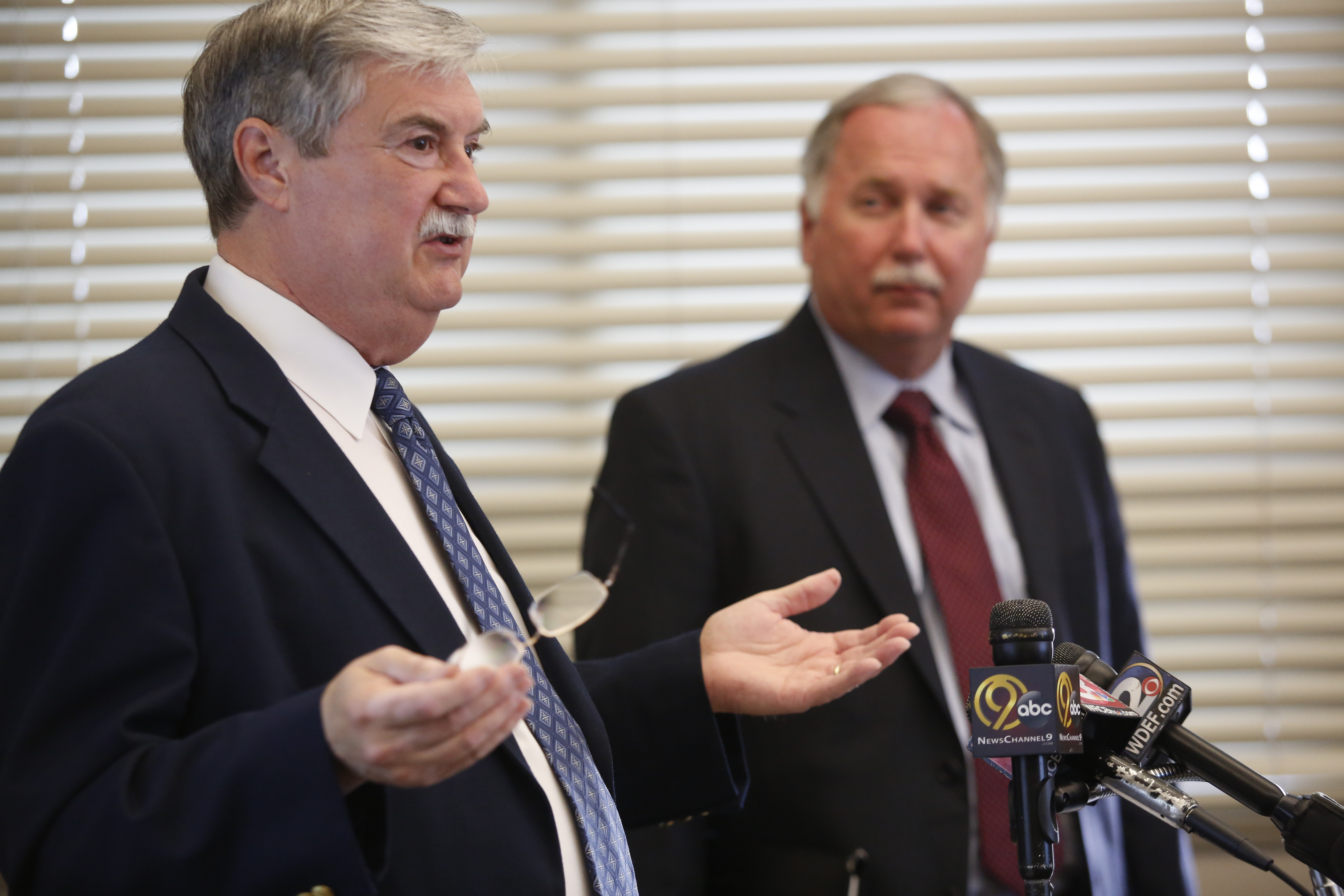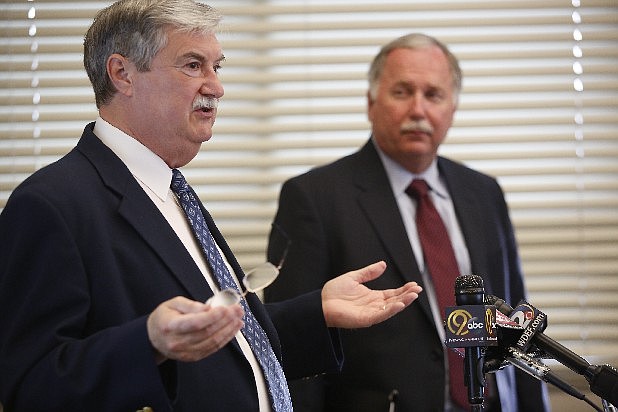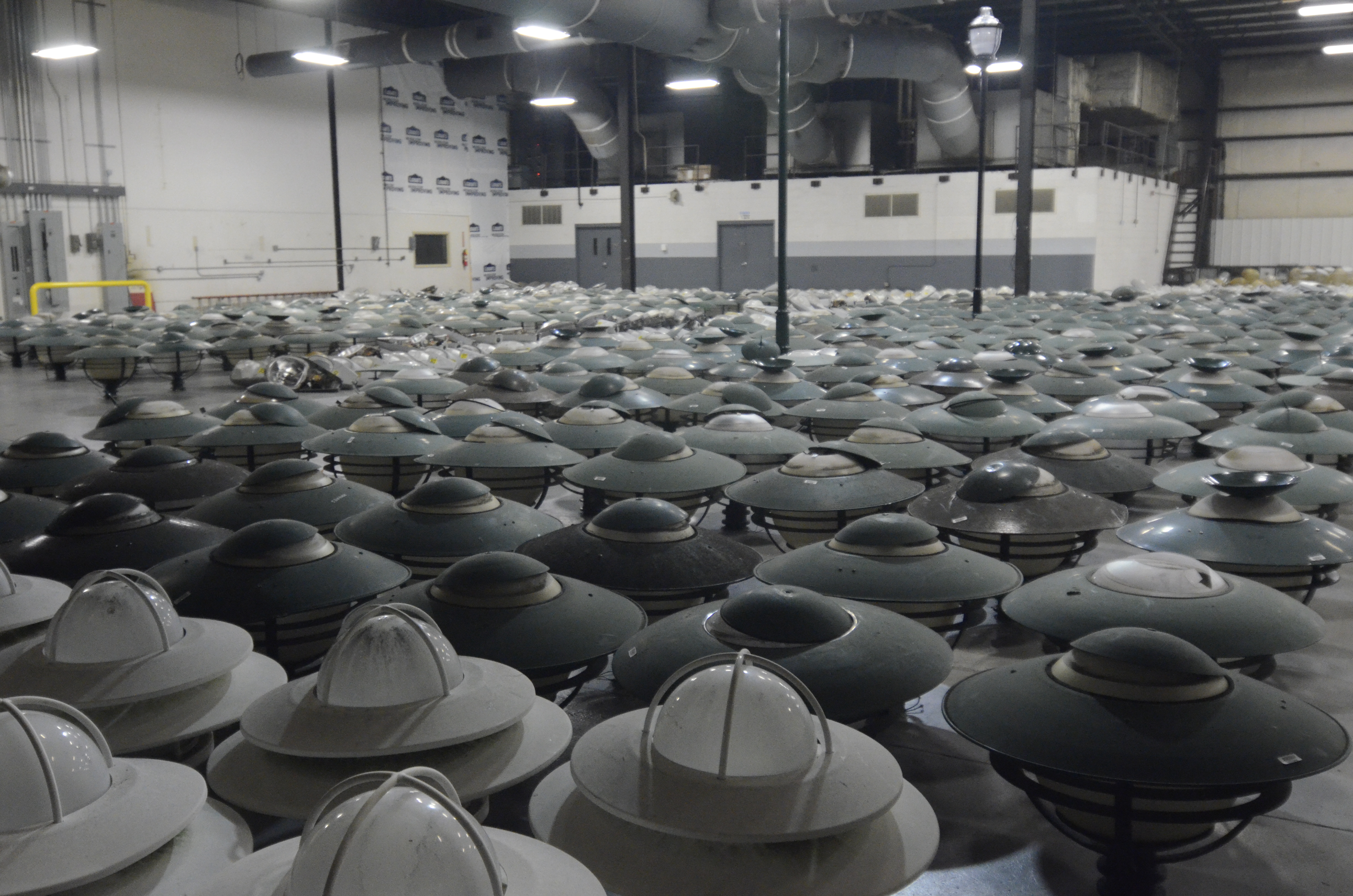 EPB President and CEO Harold DePriest, left, and Warren McEwen with the accounting firm Mauldin & Jenkins answer questions during a news conference Tuesday at EPB's Chattanooga headquarters held to address the company's over-billing of the city for street lights. EPB released an audit performed by the accounting firm Mauldin & Jenkins of their billing records.
EPB President and CEO Harold DePriest, left, and Warren McEwen with the accounting firm Mauldin & Jenkins answer questions during a news conference Tuesday at EPB's Chattanooga headquarters held to address the company's over-billing of the city for street lights. EPB released an audit performed by the accounting firm Mauldin & Jenkins of their billing records.EPB lost its initial bid today to dismiss a $10 million whistleblower lawsuit brought by former city contractor Don Lepard, who claims the utility overbilled taxpayers for years, then tried to cover it up by bullying Lepard's company, Global Green Lighting.
Lepard claims that the thousands lights he took down and replaced with LED lights weren't the same lights listed on EPB's bills, an oversight that could add up to millions of dollars in false charges, he says.
EPB initially claimed that the mistake was canceled out by other mistakes, but after months of back and forth between EPB's auditors and city auditor Stan Sewell the utility acknowledged that it may have overcharged taxpayers by more than $1 million.
At a Hamilton County Circuit Court hearing this morning to rule on EPB's motion to dismiss Lepard's suit, Judge Jeff Hollingsworth said after an hour of presentations by both sides that it comes down to whether EPB is one and the same with the City of Chattanooga.
"It is the determining question," he said.
If EPB and Chattanooga are found to be the same, "this case is over," said Hollingsworth, citing state laws that prevent the city from suing itself.
If not, as Lepard's legal counsel suggests, the suit could continue moving toward trial.
Hollingsworth gave both parties 120 days to gather evidence and depositions during this discovery phase, which is limited to proving either EPB's oneness with the city, or its independent existence.
Rick Hitchcock, an attorney for EPB, was adamant during the hearing that EPB and the city are one.
"There is no dispute that EPB and the City of Chattanooga are one and the same," he said.
He called the questioning of the relationship "remarkable."
After the hearing, Lepard said the allowance of a discovery is good for his case.
"We lived to fight another day today," he said.
EPB, known at times as the Electric Power Board, maintains its own board of directors, chairman of the board, president and CEO, chief financial officer, chief operations officer, and is generally run separately from the city.
The city pays EPB for services rendered much like any contractor, and does not receive favorable treatment from the utility, officials have said.
However, the mayor does confirm the utility's board, maintaining at the very least enough control over EPB to allow the city to audit the utility.
On the subject of the lawsuit, the utility has denied that its behavior was malicious or designed to harm Lepard, saying that the overcharges were simply the result of bad processes that date back to a time before computers were commonplace.
EPB CEO Harold DePriest has said that when the utility found out about the problem, it informed the city and began changing its lighting inventory. However, open records requests for records of the meeting or emails to city officials informing them of the problem have not resulted in any evidence that EPB and the city ever discussed the issue.
Officials said the conversation occurred over the phone, though the city has not confirmed such a conversation ever took place.
EPB on Thursday afternoon released a short statement by Katie King, senior counsel for EPB.
"It is clear the Court studied the issues very carefully, and we look forward to providing Judge Hollingsworth the information he has requested to make his final decision," King said.
Read tomorrow's Times Free Press for more.

